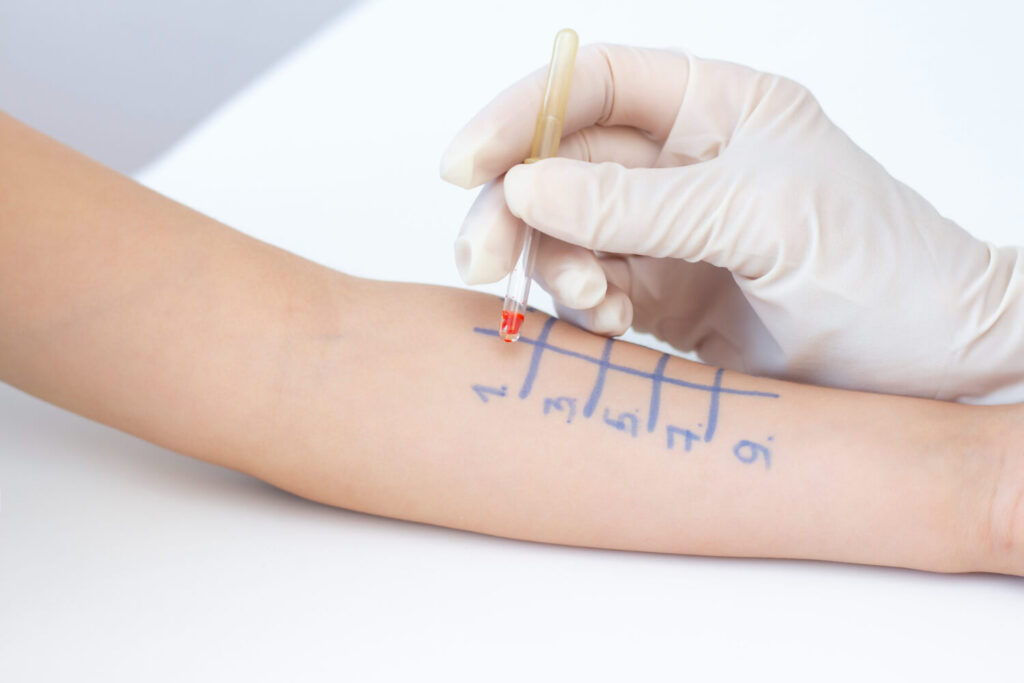Determining allergies is one of the aspects of health that people don’t commonly prioritize. That’s because not all people have the same number of allergy types in their body system. Furthermore, it is known that people have allergies at any age. When they suffer a sudden allergic reaction, that’s only when they consider finding the root of this reaction. Fortunately, an allergy test is a typical procedure health experts use to discover this concern.
Discover more about how allergy tests are a vital medical procedure for understanding different types of allergies. Whether or not you are trying to find your allergies, this comprehensive guide can help you know more about allergies. Let’s begin!
The Basics of Allergy Testing

When it comes to understanding and managing allergies, an allergy test is a procedure that provides an accurate clue for health experts to decode. In short, an allergy test serves as a diagnostic tool that pinpoints specific triggers. These can be the known allergens from food, environment, etc.
One fascinating aspect of allergy testing is its ability to unravel the intricate relationship between the immune system and external substances. Through a series of tests and analyses, healthcare professionals can decipher how the body’s defense mechanisms react to allergens, shedding light on potential sensitivities and allergies.
It is essential to discover such aspects as these triggers can cause significant discomfort or adverse reactions. Discomfort is one of the possible allergy symptoms that individuals can encounter along the way. That’s why, to ensure a better health status, undergoing an allergy test can help. Thus, allowing people to prevent some triggers and avoid potential allergic reactions.
Common allergens that can trigger an allergic reaction:
- pet dander or animal dander
- dust mites
- insect stings
- pollens
Symptoms of an Allergic Reaction
Aside from discomfort, several warning signs can indicate an allergic reaction. It’s ideal for individuals to recognize the symptoms early on as it can help them prioritize what’s best for their health.
Some of the possible symptoms include:
- sneezing
- stuffy nose
- itchy skin and eyes
- skin rashes
- swelling of the skin
- anaphylaxis
Understanding these symptoms signifies the need to identify the particular trigger for the allergic reaction, which an allergy test can provide. It’s best to seek a health care provider immediately when symptoms occur.
The Role of Allergy Tests in Diagnosis
Allergy tests are essential in diagnosing the specific allergens responsible for an individual’s allergic reactions. By identifying these triggers, healthcare providers can develop personalized treatment plans, avoidance strategies, medication, or allergen immunotherapy. In short, allergy tests guide doctors in helping patients to manage allergic reactions better.
Moreover, the results of skin tests and other allergy tests empower individuals to take proactive measures to avoid adverse effects like anaphylaxis. By possessing such knowledge, they can change their lifestyle to help keep their triggers at bay. Thus, allowing them to live better while managing their allergies.
Types of Allergy Tests

There are different types of allergy tests that doctors can recommend to individuals. Each diagnostic test can determine the specific allergen that triggered the reaction. Furthermore, there’s a high chance that experts can discover rare cases of allergies with the help of these allergy tests.
Find out the type of test for determining your allergy below!
Skin Prick Test
The first type of allergy test is the skin prick test, also known as a scratch test. This type of test is one of the common methods doctors use to learn about the patient’s allergies. At the beginning of this allergy skin test, the doctor will scratch the skin to analyze how this skin normally reacts. Afterward, the doctor will proceed by pricking a small amount of allergen onto the skin’s surface and waiting for an allergic reaction. The skin surface will possibly produce a small red bump indicating a reaction from the injected allergen.
Blood Test
On the other hand, another allergy test that doctors use is a blood test or vitro test. Allergy blood tests can analyze the blood for specific antibodies related to allergies. The health expert will use hypodermic needles to extract a blood sample and verify the number of immunoglobulin e (IgE) antibodies in the blood.
Remember that doctors commonly recommend this test unless the skin testing doesn’t work. In special cases, this test is also suitable for patients who need to be on certain medications. Since blood tests only require a blood sample, the test result will still be accurate as there are no other factors that can affect the possible allergic reaction.
Patch Test
Meanwhile, a patch test is another skin test for identifying contact allergens that may cause skin reactions. Unlike other allergy skin testing, the method used in patch testing requires applying allergens on the back of the patient for 48 hours. Afterward, the doctor will monitor the skin health for any allergic reaction. This test is ideal for checking for contact dermatitis, and other skin conditions.
Intradermal Test
In comparison to the skin prick test, the intradermal skin test involves injecting a small amount of allergen under the skin to assess the body’s reaction. This test can cause stronger reactions in some individuals and is usually reserved for specific cases where other tests have been inconclusive. That means this allergy test is used when the skin prick test doesn’t work.
Preparing for an Allergy Test
Before scheduling an allergy test, individuals need to understand the importance of accurate results. Allergy tests help identify specific allergens that trigger adverse reactions in the body, allowing healthcare providers to develop effective treatment plans. In addition to informing their healthcare provider about medications, individuals should also be prepared to discuss their medical history, including any previous allergic reactions or family history of allergies.
What to Expect During an Allergy Test

Before the allergy test, individuals may be instructed to temporarily stop taking certain medications that could interfere with the results. The healthcare provider will explain the different types of allergy tests and recommend the most suitable based on the individual’s symptoms and medical history. During the test, the healthcare provider will carefully administer the test allergens and monitor for any reactions, ensuring a safe testing environment.
Post-Test Procedures and Follow-ups
After the allergy test, healthcare providers will review the results with the individual and recommend appropriate next steps. Depending on the findings, individuals may be advised to make lifestyle changes, such as avoiding specific allergens or implementing environmental modifications. For instance, if the patient has a food allergy, the doctor will recommend a trip to a dietitian for an effective meal plan.
In cases where allergies are severe or persistent, healthcare providers may suggest allergen immunotherapy, a treatment that involves gradually exposing the individual to increasing amounts of allergens to build tolerance over time.
The Importance of Allergy Testing in Healthcare
Disease Prevention
Allergy testing plays a crucial role in disease prevention by identifying potential triggers that can lead to severe allergic reactions or anaphylaxis. With this knowledge, individuals are compelled to take precautionary measures to ensure the management of their allergy.
Furthermore, this medical procedure can help healthcare providers develop personalized treatment plans for patients with allergies. By pinpointing specific allergens, doctors can recommend allergy medicines and immunotherapy.
Improved Quality of Life
People with allergies should expect the significant impact of allergies on their quality of life. Allergy testing helps to identify the specific allergens responsible for allergic reactions, enabling individuals to make informed decisions about their lifestyle and take proactive steps towards managing their allergies.
In addition to managing symptoms, allergy testing can uncover hidden triggers that individuals may not have been aware of. Thus, leading to a more comprehensive approach to allergy management. This understanding allows for better control of allergic reactions and empowers individuals to lead a fuller and more active life without constant fear of exposure to allergens.
Avoid Life-threatening Consequences
Allergy testing is not just about identifying triggers; it’s a crucial step to avoid life-threatening consequences. By knowing one’s specific allergens, individuals can avoid potential dangers and prevent severe allergic reactions that could prove fatal. In essence, undergoing allergy testing highlights the importance of prioritizing one’s health as it can help detect the cause of allergic reactions, both mild and severe.
Conclusion
Suffering from an allergy is a life filled with constant threats from the possible allergens that can trigger a reaction. It can be alarming for some people, especially those who haven’t figured out their allergies yet. In that case, it will be difficult to navigate the best lifestyle choices as they don’t know which allergen triggers their allergies. This scenario shows the importance of undergoing an allergy test to understand their condition better.
Aim to prevent allergic reactions by understanding which allergens can trigger them through an allergy test. Book an online consultation with an allergist and immunologist today!
Allergy Test Knowledge Quiz
Test your understanding of allergy testing



